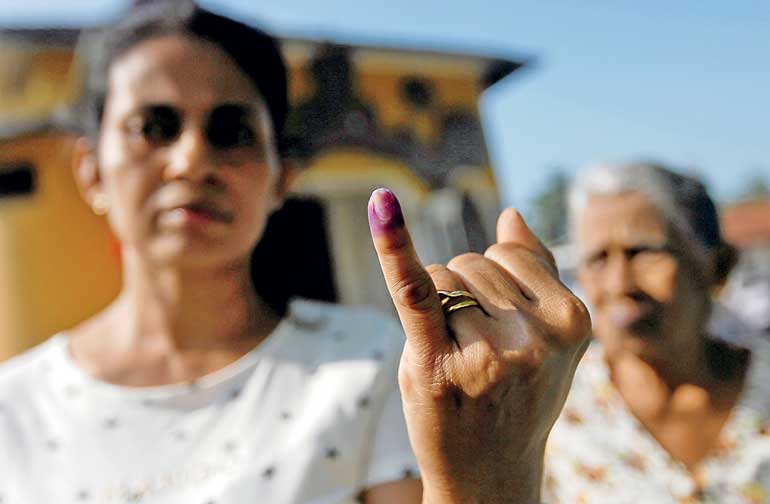Sunday Feb 22, 2026
Sunday Feb 22, 2026
Monday, 12 February 2018 00:00 - - {{hitsCtrl.values.hits}}

(AJ): Voters in Sri Lanka are choosing representatives in more than 300 local polls, with more female candidates than ever standing for election.
A change in the law requires women to fill a quarter of all seats elected in Saturday’s vote - more than 12 times the current number.
Rosy Senanayake, a diplomat and parliamentarian, is aiming to become the mayor of the capital, Colombo.
She is the first woman to try.
“I strongly believe that we cannot have democracy if we do not interest the needs of the majority of the population,” said Senanayake, a former Mrs. World.
“The majority of the population in Sri Lanka are women.”
She is just one of 17,000 women contesting local government elections - a record number.
Samanmalee Gunasinghe, a candidate of the Marxist People’s Liberation Front (JVP), says the changes will give more deserving women a chance.
“In our country, it was a minister’s daughter, siblings or those from political families that could enter politics. But we think honest, talented women should come into politics where laws are made. This election can do that,” she said.
The stakes are high for all political parties, with local issues such as roads, streets lights and garbage disposal are taking on the intensity of a national fight.
The vote is seen as is seen as a crucial mid-term test for the uneasy coalition of President Maithripala Sirisena.
The election heightened tensions between the president and his senior coalition partner, Prime Minister Ranil Wickremesinghe, as they campaigned separately for their respective parties amid a growing rift between the two men.
The vote, the first to be conducted by the newly established independent Election Commission, was the most peaceful in decades, private monitors said.
Sirisena was backed by Wickremesinghe’s United National Party (UNP) in January 2015 to topple the government of President Mahinda Rajapaksa.
But since then their alliance has fractured, with Sirisena publicly accusing the UNP of being more corrupt than the former Rajapaksa regime.
The UNP has, in turn, accused Sirisena of backstabbing and indicated it may go it alone in the next general election in 2020.
The UNP is expected to claim the lead in Saturday’s poll for 340 local government bodies while the parties led by Sirisena and Rajapaksa are expected to battle it out for the second place.
More than 8,300 members are due to be elected under a complex hybrid voting system that combines the first-past-the-post and proportional representation systems.